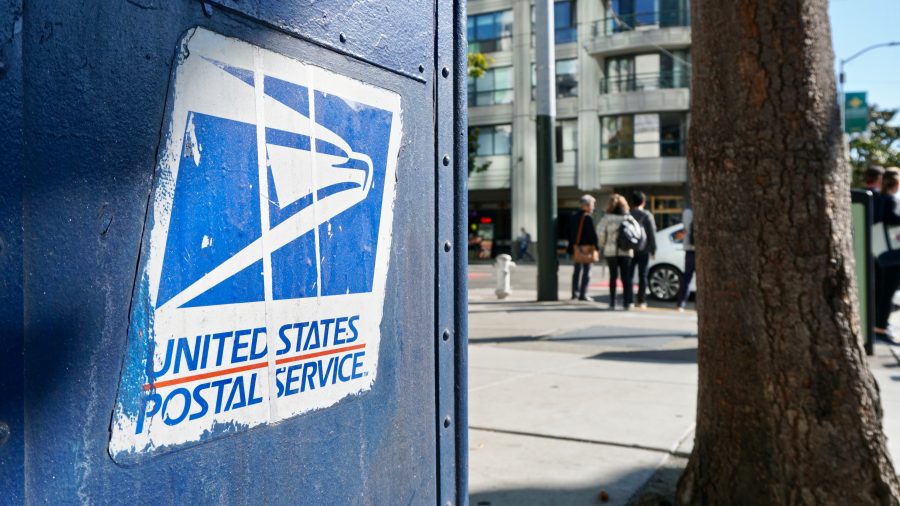Neither snow nor rain nor heat nor gloom of night stays these couriers from the swift completion of their appointed rounds.
These are the words chiseled in gray granite over the entrance of the New York City Post Office on 8th Avenue. We all know some form of this old adage, and many of us value and respect mail carriers because of this. But not everyone knows just how far that goes. Or exactly we might lose if they cease to exist as we know it.
In a video testimony to members of the House of Oversight and Reform, Postmaster General Megan Brennan warned that due to the “devastating” drop in revenue caused by the coronavirus pandemic, the United States Postal Service USPS could run out of funding this fiscal year.
“The sudden drop in mail volumes, our most profitable revenue stream, is steep and may never fully recover. We now estimate that the COVID-19 pandemic will increase the Postal Service’s net operating loss by more than $22 billion dollars over the next eighteen months, and by over $54 billion dollars over the longer term, threatening our ability to operate,” Brennan said in a statement on stimulus needs.
The Washington Post recently reported that President Donald Trump was blocking potential emergency funding, threatening to veto the $2 trillion Coronavirus Aid, Relief, and Economic Security Act (CARES Act) if a single cent went to the USPS. Treasury Secretary Steven Mnuchin also blocked the original $13 billion direct grant, telling lawmakers during negotiations to take a loan or nothing at all. A last-minute $10 billion Treasury Department loan was added to the CARES Act to supplement the USPS through the spring, and is currently awaiting approval.
The USPS is an independent agency of the executive branch of the United States. They are responsible for providing postal service to all 50 states, as well as the Freely Associated States. They provide equal and guaranteed access to an invaluable line of communication. The USPS is even in the Constitution—under the Postal Clause.
The USPS was originally introduced to facilitate interstate communication and create a source of revenue for the early United States. They currently sort, transport and deliver mail to over 160 million addresses and employ more than 650,000 people.
Because it is an independent agency, they receive no taxpayer funding. Meaning, they rely solely on the sale of postage, products and services to fund its operations, at a steep discount from the privatized, for-profit carriers like FedEx, Amazon and DHL. Sending a birthday card costs the same as buying a stamp—55 cents flat, be it in a major city or in rural Montana. Using a private service like FedEx? The cost skyrockets to $15.50: $7.85 for the base ground charge, $4 for a residence charge, $3.65 for a rural charge. That’s a whopping 31 times cheaper.
The Postal Act of 1792, which was signed into law by none other than George Washington, made the decision that the post office would serve every community regardless of costs. This is something that doesn’t happen in privatized, for-profit models—UPS, Amazon, DHL and FedEx all leave their non-profitable (i.e hard to reach places like rural areas, or remote areas only accessible through plane or boat) packages on the docks of the USPS, who take it the last mile.
Trump’s lack of support is due to his inaccurate belief that simply raising the prices for this last mile service is the solution, and from a decades long Republican effort to privatize the postal service, stripping it of its public sector status. This reached its peak with the 2006 Postal Accountability and Enhancement Act that required the USPS to fully fund its retiree’s health benefits for 75 years into the future. And for that money to be set aside over a 10-year period at a rate of more than $5 billion per year, meaning the postal service was to pay for the health care of retirees that have not yet retired, have not yet been hired—some of which have yet to be born. This debt-inducing clause, by the way, is wholly unique to the USPS; it applies to no other federal agency or private corporation in the nation.
The House voted to repeal the mandate earlier this year in February, but the 13 years of damages to the USPS finances have pushed it closer and closer to privatization of a public sector service. The pandemic could be the final punch to the still teetering independent agency.
Why the push to privatize? Money. Even excluding physical assets like vehicles, offices and computer networks, the USPS has billions in proprietary data. All of the resources, network infrastructure and logistical capability to regularly deliver to every residential and business address in the nation adds up to a pretty penny that businesses would love to get their hands on. USPS also has the nation’s largest retail network, larger than a combined McDonald’s, Walmart and Starbucks, domestically.
Why is it vital that the USPS remain a public sector entity? Those rural and remote areas would be cut off in a second in a private market, jeopardizing those who rely on the postal service to mail their ballots, to receive medications, food and other essential items. There is no profit in remote delivery locations—either they will be cut out entirely or charged a premium for a service that is theirs by right (in the Constitution, remember?). There is no profit in figuring out where to deliver a piece of mail that was addressed incorrectly, no profit in friendly conversation, no profit in little details provided free of charge by your local mail carrier.
The USPS also provides another vital service, the Carrier Alert program. Built off of the familiarity that postal workers often develop with those on their route, postal employees regularly go beyond the call of duty to monitor the well-being of eldery and disabled mail patrons. Those involved with the program place a sticker on their mailbox that alerts the mail carrier to call the appropriate officials if the patron’s mail begins to accumulate or differ from their usual habits.
Ultimately, and perhaps most importantly, the USPS provides the most essential service of all—a daily chance at a friendly hello. For many folks across the nation, their mail carrier is one of the few, and in some cases only, point of human contact they have, even before social distancing. Even if you don’t know your mail carrier, they know you and work to ensure you receive your mail no matter where you live.
How can you help the USPS continue to provide a service that earns them the highest approval rating of any government agency?
An easy, quick and efficient method is to text “USPS” to 50409, which will contact the congressperson in your area on your behalf. Another is to simply write an old fashioned card and buy some stamps. Encourage your friends and family to do the same. They also have various gifts and items for purchase via their website, from t-shirts, to tote bags, to a mail carrier costume for your dog. Make some noise any way you can to demand the same bailout for a community service that is given freely to banks and airlines.
If you’re looking to do some more good during these trying times, you can also donate to food banks in your area in honor of the USPS’ annual Stamp Out Hunger Food Drive, originally scheduled for May 9, but postponed until further notice due to the pandemic.



